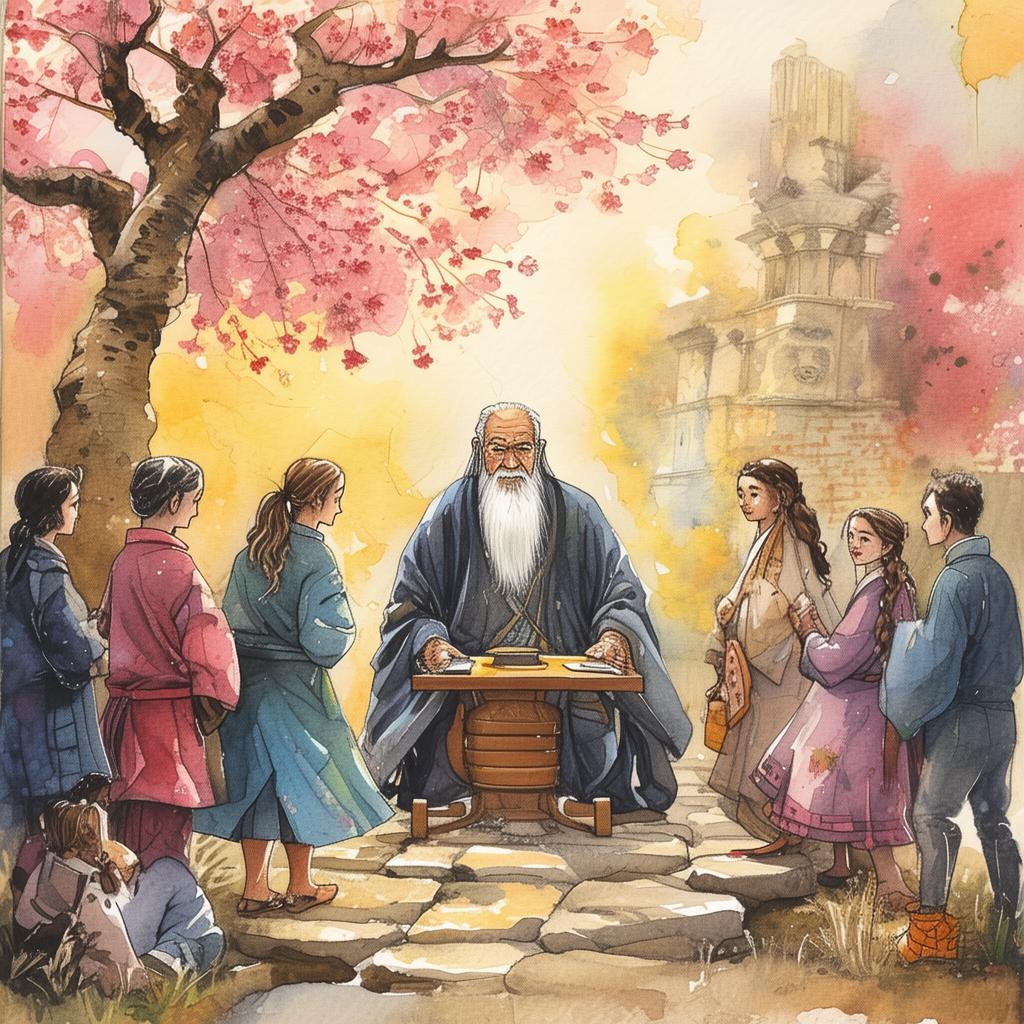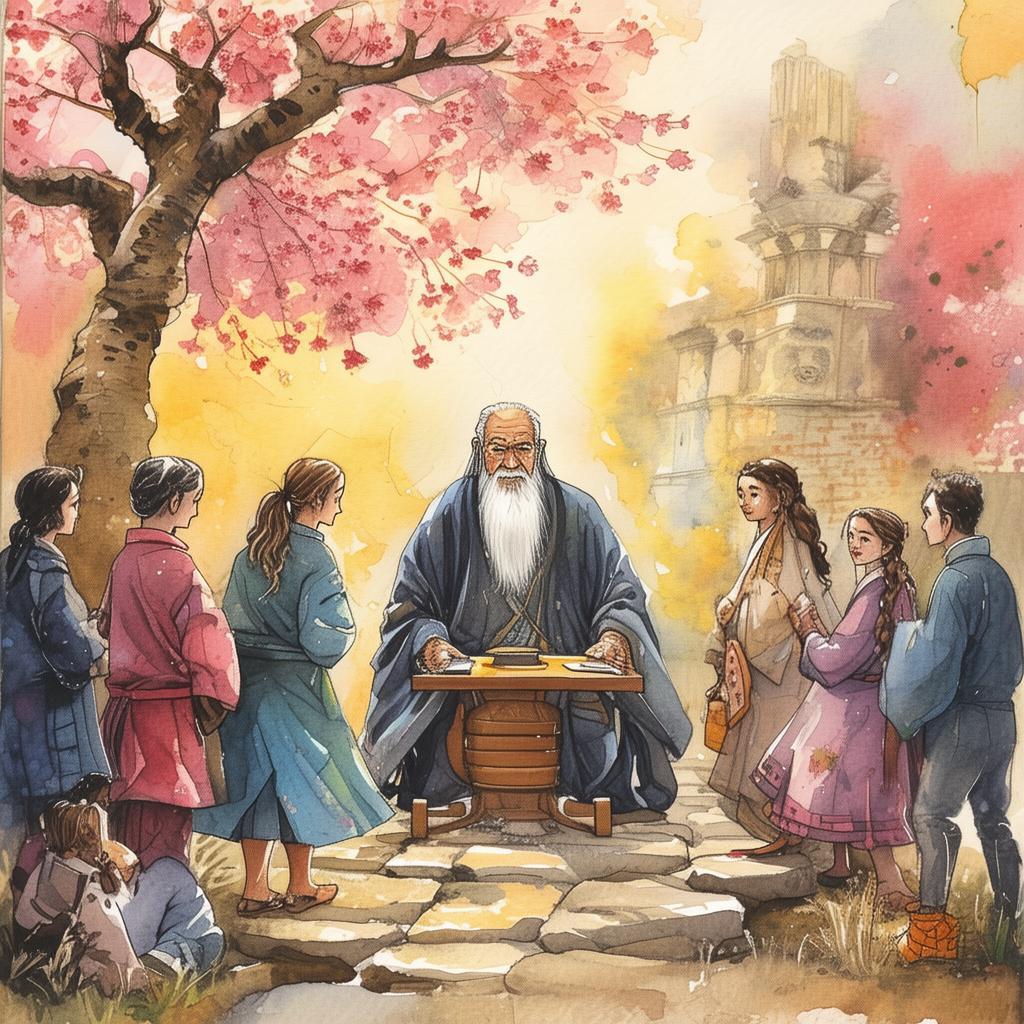The Last Pillar of Hope
In the year of 1348, the city of Veritas was struck by a plague so virulent that it claimed the lives of thousands within days. The streets were eerily silent, and fear gripped the hearts of the few remaining inhabitants. Among these few was Dr. Lucius, a man of immense intellect and unwavering determination. It was said that he was the last physician who had not succumbed to the disease, and thus, he became the city's last pillar of hope.
Dr. Lucius had been studying the plague for years, ever since he had first seen it in the countryside. He had observed its symptoms, its spread, and its impact on the human body. He knew that the key to overcoming this scourge was not just in finding a cure, but in understanding the nature of the disease itself.
One cold autumn evening, as the wind howled through the streets, Lucius stood before his patients, who had gathered in a dimly lit church for a final plea for mercy. The room was filled with despair, and the air was thick with sorrow.
"Listen to me, all of you," Lucius called out, his voice echoing through the church. "We have been fighting this plague for months, and I have studied it with every fiber of my being. I believe I am close to understanding how to defeat it."
The crowd murmured, their voices a mix of hope and skepticism. Lucius continued, "But I need your help. I need you to trust me, to do as I say, and to believe that we can survive this."
He had discovered that the plague was spread through tiny particles in the air, and that the only way to stop it was to create a barrier that would prevent these particles from reaching the healthy. But such a barrier required a material that was scarce and difficult to find.
Lucius knew that he had to act quickly. He approached the city's leaders, who were also on the brink of despair. "I need your support," he said. "I need you to gather all the resources necessary to create this barrier."
The leaders, though initially hesitant, agreed. They knew that without Lucius, the city would fall. And so, under his guidance, they began to collect the materials needed for the barrier.
Days turned into weeks, and the city's defenses were strengthened. The people of Veritas worked tirelessly, driven by the hope that Lucius had inspired. But as the days passed, the plague continued to spread, and the situation grew more dire.

One night, as Lucius was reviewing the latest data on the disease, he had an epiphany. He realized that the key to stopping the plague was not just in creating a physical barrier, but in understanding the disease itself at a cellular level.
He worked through the night, poring over his research, until dawn broke. By then, he had developed a new theory that he believed could cure the disease. He immediately set out to test his theory on the first available patient.
The experiment was a success. The patient recovered, and the news spread like wildfire through the city. Hope returned to Veritas, and the people began to believe that they could survive this plague.
However, Lucius knew that his work was far from over. He had to find a way to cure the disease for everyone, and he knew that he had to do it quickly.
As the days passed, Lucius worked tirelessly, driven by a single goal: to save his city. He faced numerous challenges, from a lack of resources to the skepticism of his fellow physicians, but he never wavered.
Finally, after weeks of grueling work, Lucius had a breakthrough. He had developed a cure for the plague, and it was ready to be tested on a larger scale.
The day of the test was a day of celebration in Veritas. The people had gathered in the streets, their hearts filled with hope and gratitude. Lucius stood before them, his eyes filled with determination.
"This is the end of the plague," he declared. "We have found a cure, and it will save us all."
As the news spread, the city erupted in joy. The people of Veritas had faced one of the darkest periods in their history, but they had emerged stronger and more united than ever before.
Lucius, the last pillar of hope, had saved his city. And in doing so, he had become a symbol of resilience, of courage, and of the unyielding spirit of humanity.
In the end, Veritas was not just saved from the plague; it was saved from itself. The people had learned to rely on one another, to trust in the power of hope, and to believe that even in the darkest of times, there was always a way forward.
And so, the story of Dr. Lucius, the last pillar of hope, became a legend that would be told for generations to come. It was a story of resilience, of sacrifice, and of the enduring power of the human spirit.
✨ Original Statement ✨
All articles published on this website (including but not limited to text, images, videos, and other content) are original or authorized for reposting and are protected by relevant laws. Without the explicit written permission of this website, no individual or organization may copy, modify, repost, or use the content for commercial purposes.
If you need to quote or cooperate, please contact this site for authorization. We reserve the right to pursue legal responsibility for any unauthorized use.
Hereby declared.









